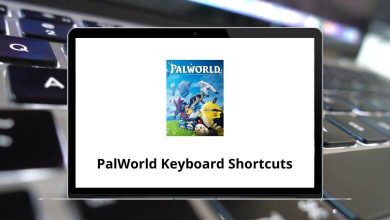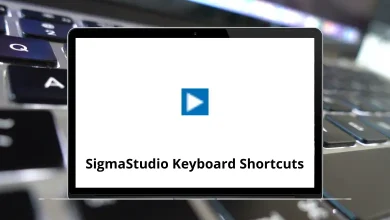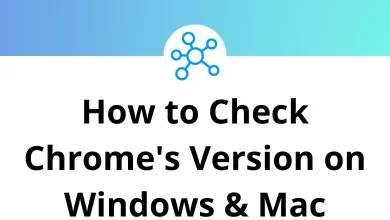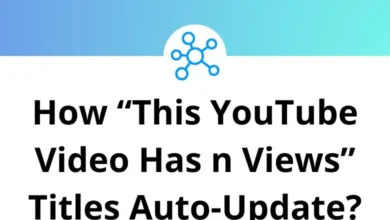10 Costly Beginner Blogger Mistakes To Avoid
Starting a blog is exciting. You have ideas, motivation, and maybe even a vision of turning it into a source of income. But here’s the thing: most new bloggers unknowingly repeat the same mistakes that slow down their growth or make them quit too early.
Table of Contents
- 1 1. Writing Without a Clear Audience
- 2 2. Ignoring SEO Basics
- 3 3. Posting Inconsistently
- 4 4. Choosing the Wrong Blogging Platform
- 5 5. Writing Walls of Text
- 6 6. Forgetting to Build an Email List
- 7 7. Monetizing Too Early (or Too Late)
- 8 8. Not Networking with Other Bloggers
- 9 9. Skipping Analytics
- 10 10. Quitting Too Soon
- 11 Final Thoughts
If you’re just starting, this guide will save you time, energy, and frustration. Let’s walk through the 10 costly beginner blogger mistakes and more importantly, how you can avoid them like a pro.
1. Writing Without a Clear Audience
One of the first mistakes new bloggers make is writing for everyone. The problem? When you write for everyone, you connect with no one.
Why it’s costly:
- Your posts feel too general.
- Readers don’t feel like you “get” them.
- You miss opportunities to stand out in a niche.
How to avoid it:
- Define your target audience clearly.
- Ask: “Who am I writing for, and what problem am I solving?”
- Create reader personas (example: “freelance designer,” “college student,” or “tech enthusiast”).
If you run a blog about tools (like Photoshop Shortcut Keys or WordPress Shortcut Keys), don’t just say “here are shortcuts.” Instead, tailor it: “If you’re a beginner in Photoshop, these shortcuts will save you hours every week.”
2. Ignoring SEO Basics
SEO can feel intimidating, so many beginners avoid it altogether. Big mistake.
Why it’s costly:
- Your blog posts won’t show up on Google.
- You’ll rely only on social media traffic (which is inconsistent).
- Months of effort may get little visibility.
How to avoid it:
- Learn basic SEO: keyword research, meta descriptions, headings, and internal linking.
- Use free tools like Google Keyword Planner or Ubersuggest.
- Naturally link to your own posts. For example, if you’re writing about web browsers, link to your Chrome Shortcuts or Firefox Shortcuts blog.
Small SEO improvements compound over time, bringing you free, consistent traffic.
3. Posting Inconsistently
Another rookie mistake? Posting five blogs in a week and then disappearing for a month.
Why it’s costly:
- Readers lose trust and stop coming back.
- Google doesn’t see your site as “active.”
- You lose momentum.
How to avoid it:
- Create a content calendar (even if it’s one post per week).
- Write in batches and schedule posts in advance.
- Focus on consistency, not perfection.
Think of it like working out: doing a little regularly beats doing a lot once and then quitting.
4. Choosing the Wrong Blogging Platform
Some beginners pick a free platform like Blogspot or WordPress.com, thinking they’ll “upgrade later.”
Why it’s costly:
- Limited customization and features.
- Harder to monetize.
- Migrating later can be a nightmare.
How to avoid it:
- Start with WordPress.org (self-hosted).
- Use reliable hosting (SiteGround, Bluehost, etc.).
- Think long-term about growth and flexibility.
If you’re serious about blogging, invest early in a platform that won’t limit you later.
5. Writing Walls of Text
Many new bloggers underestimate how readers consume content online. Huge blocks of text scare people away.
Why it’s costly:
- High bounce rates.
- Readers skim and miss your message.
- You look less professional.
How to avoid it:
- Break content into short paragraphs.
- Use bullet points, numbered lists, and visuals.
- Add bold text for key points (just like this!).
For example, when you’re listing Adobe InDesign Mistakes, breaking them into digestible sections makes the content easier to follow and more engaging.
6. Forgetting to Build an Email List
New bloggers often wait until they have “enough traffic” before starting an email list. Wrong move.
Why it’s costly:
- You lose potential subscribers from day one.
- You depend too much on social media algorithms.
- You miss chances to nurture loyal readers.
How to avoid it:
- Add a simple opt-in form to your site.
- Offer a freebie (like a “Shortcuts PDF” or “Beginner’s Guide”).
- Start with free tools like Mailchimp or Kit (ConvertKit.)
Your email list becomes your direct line to readers far more reliable than chasing likes or shares.
7. Monetizing Too Early (or Too Late)
Some beginners slap ads all over their site on day one. Others wait years to even think about monetization. Both extremes hurt.
Why it’s costly:
- Too many ads = poor user experience.
- No monetization = leaving money on the table.
How to avoid it:
- Focus first on building quality content.
- Once you have steady traffic, explore:
- Affiliate marketing (Amazon, software tools).
- Selling digital products (like a “Google Docs Shortcuts PDF”).
- Running ads strategically.
The sweet spot? Start experimenting with monetization once you’re consistently getting visitors, but don’t rush it.
8. Not Networking with Other Bloggers
Blogging can feel lonely, and many beginners try to do everything solo.
Why it’s costly:
- You miss backlinks and collaborations.
- No one shares your posts.
- Growth is painfully slow.
How to avoid it:
- Comment on other blogs in your niche.
- Join communities (Reddit, Facebook groups, LinkedIn).
- Reach out for guest posts or collaborations.
Remember: blogging is not just about writing it’s about building relationships.
9. Skipping Analytics
Many new bloggers never check their analytics or they only look at vanity metrics like pageviews.
Why it’s costly:
- You don’t know what’s working (or failing).
- You waste time on low-value content.
- You can’t make data-driven decisions.
How to avoid it:
- Install Google Analytics and Google Search Console.
- Track where your traffic comes from.
- Double down on posts that perform well.
Example: If you see your VLC Shortcuts blog driving traffic, consider writing related posts like KMPlayer Shortcuts or PotPlayer Shortcuts.
10. Quitting Too Soon
Here’s the harsh truth: most blogs fail because their owners give up after 6 months.
Why it’s costly:
- You miss the compound effect of blogging.
- All your early work goes to waste.
- You stop just before momentum builds.
How to avoid it:
- Set realistic expectations. Blogging success takes time.
- Celebrate small wins (like your first 100 visitors).
- Stay consistent and keep learning.
The bloggers who “make it” aren’t always the smartest they’re the ones who stick with it.
Final Thoughts
Blogging is a long game. Mistakes will happen it’s part of the process. But now that you know the 10 costly beginner blogger mistakes, you can sidestep them and grow faster than most beginners ever will.
Remember:
- Focus on your audience.
- Be consistent.
- Keep learning and improving.
Whether you’re writing about design tools, productivity hacks, or even niche guides like AutoCAD Shortcuts or Blender Shortcuts, avoiding these pitfalls will help you build a blog that not only survives but thrives.
READ NEXT:





